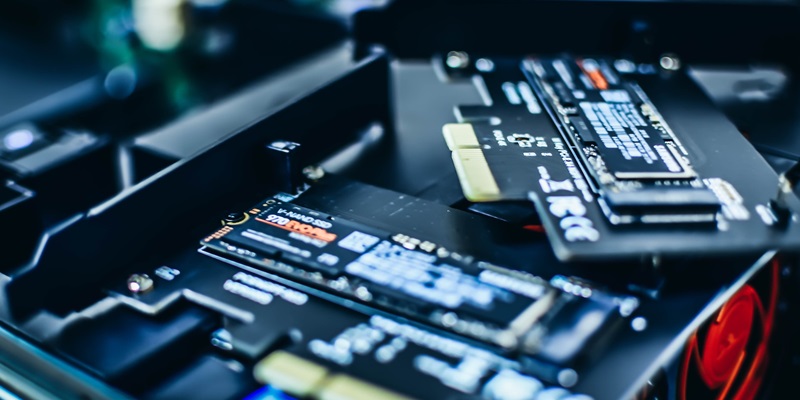In a significant development for computer enthusiasts and tech enthusiasts alike, MSI and ASRock have announced their adoption of the new DDR5 memory standard. With these leading motherboard manufacturers on board, it’s only a matter of time before other companies, such as Gigabyte and Asus, follow suit. This announcement paves the way for groundbreaking advancements in RAM capacity and performance.
MSI Sets the Bar: Up to 256GB Installations
MSI takes the lead in embracing the potential of DDR5 memory by announcing support for installations of up to a staggering 256GB. This significant increase in memory capacity opens up a world of possibilities for users seeking enhanced performance and multitasking capabilities. Whether it’s gaming, content creation, or intensive workloads, users can now harness the power of massive amounts of RAM.
ASRock follows suit with DDR5 support
Following closely in MSI’s footsteps, ASRock has unveiled that two of its motherboard models, the X670E-Taichi and Z790 Nova WiFi, will also support DDR5 memory. This announcement further solidifies the industry’s shift towards the new standard and offers users more options when selecting their preferred motherboard.
Partnership with Kingston and Micron: The Perfect Combination
Both MSI and ASRock have chosen to collaborate with Kingston, a leading memory manufacturer. By utilizing Kingston Fury Renegade KF560C36-64 memory kits, which incorporate advanced Micron memory, they ensure the highest quality and performance for users seeking top-notch DDR5 modules. Micron’s 1β (1-beta) process has been instrumental in enabling the increased RAM capacity and data transfer speeds.
DDR5-6000 Speed: A Perfect Fit for AMD’s X670 Chipset
ASRock has revealed that the memory sticks used in their DDR5-supported motherboards boast a DDR5-6000 speed. While it may not be the fastest available on the market, this speed is considered the optimal choice for compatibility with AMD’s X670 chipset. This combination guarantees both outstanding performance and stability for users seeking the best gaming or computing experience.
Benefits for Power Users and Mini-ITX Builds
While most desktop users may not require such massive amounts of memory, the arrival of 64GB modules brings exciting opportunities for power users. These users, who often push their systems to the limits with resource-intensive tasks, will greatly benefit from the expanded RAM capacity. Additionally, mini-ITX builds, known for their compact size, can now harness the power of 128GB DDR5 memory in just two slots, allowing for remarkable firepower in smaller packages.
Micron’s Future Plans: 128GB and 256GB Modules
If the current DDR5 capacities are not impressive enough, Micron has its sights set on even loftier goals. The company plans to introduce 128GB sticks by 2025, followed by the arrival of 256GB modules in the same year. These advancements will undoubtedly revolutionize the computing landscape, enabling even more demanding tasks and creating unparalleled opportunities for innovation.
Exciting prospects for gaming rigs in 2025
Looking ahead, the gaming community can anticipate the arrival of 256GB DDR5 sticks running at an impressive 12,800MHz. This significant leap in capacity and speed will undoubtedly result in gaming rigs that are nothing short of powerhouse machines. The gaming experience in 2025 is poised to be revolutionized, with unprecedented performance and an unrivaled ability to handle the most demanding games on the market.
The adoption of DDR5 memory by industry leaders MSI and ASRock marks a significant leap forward in computing technology. With support for installations of up to 256GB, users can now enjoy extraordinary memory capacity, faster speeds, and enhanced performance for a wide range of applications. As more manufacturers join the DDR5 revolution and Micron drives further advancements, the future of computing looks incredibly promising, offering users the potential for unparalleled power and efficiency.

